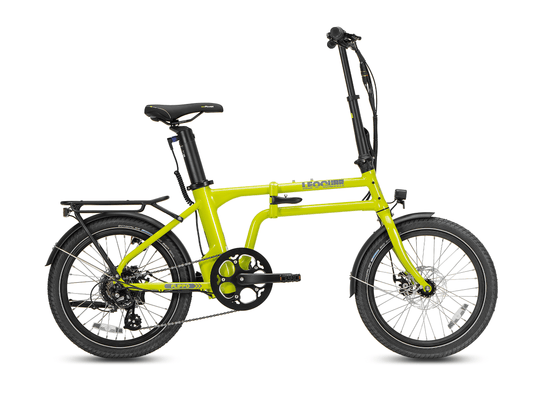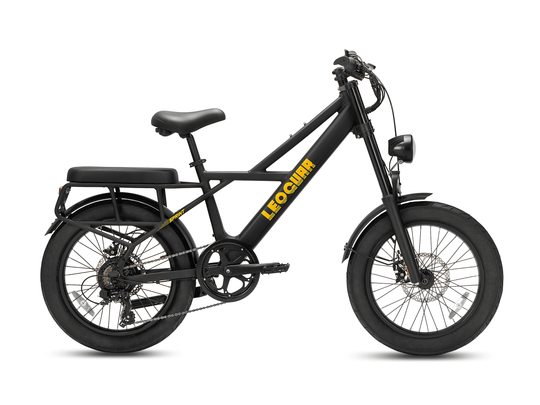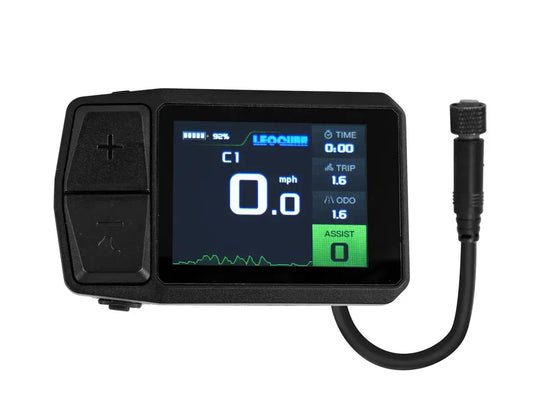Introduction – Setting the Stage
The
e-bike market is growing fast. In 2025, the cost to replace a battery changes a lot because of market trends, new tech, and different upkeep methods that matter to owners, fans, and buyers alike. Batteries cost between $300 and $900. New tech and battery type can increase this price further with better longevity and safety built in.
Prices and demands change quickly. Supply chain fixes and tech advances make it cheaper to build batteries while increasing performance. It is key to learn what makes prices go up, like battery cell type, design changes, and new laws. Careful charging and routine checks help the battery last longer and cut strange costs.
We share facts and market reviews from trusted places like Goldman Sachs. Our article sums up the main cost factors, compares prices, and gives you tips so you can plan for both planned and surprise battery needs. The guide gives clear cost details, so you can budget well for your e-bike’s battery in a changing market.
Understanding E-Bike Batteries and Replacement Basics
E-bike batteries power the electric bike. They keep the ride smooth and strong. Most modern e-bikes use Lithium-ion cells; older bikes might use Lead-Acid ones. New batteries affect weight, energy, and how often you change them.
Different specs like capacity (in Ah), voltage, and built-in safety tools keep the electric bike safe. They help the battery work well and last long.
Types of E-Bike Batteries
Lithium-ion is the top choice. These batteries are light, last long, and hold a lot of energy. They typically offer 10Ah to over 20Ah and have smart features that manage charging cycles. Lead-Acid batteries cost less but do not last as long or store as much energy. New kinds like Lithium Iron Phosphate (LiFePO4) and solid-state batteries are entering the market.
Words like capacity, voltage, and BMS mean energy stored, power output, and safe battery management, which are simple yet key facts.
When and Why Replacement is Needed
Batteries need change when they work less well. Their range drops and charging slows down after about 500 to 1,000 charge cycles or three to five years of use.
Safety is also a worry when batteries get old because they could overheat or act unpredictably. User cases show that changing a battery on time restores efficient riding and avoids hazards. Following the manual and checking performance often tells you the best time for a battery upgrade so you stay safe.
Factors Influencing Replacement Cost in 2025
Many things affect the cost of an e-bike battery in 2025. Price depends on technical details, tech changes, and even outside economic factors like tariffs and energy costs. Each factor adds to the final price when you buy a new battery.
Battery Capacity, Voltage, and Brand Influence
Battery capacity and voltage set the price. A standard 36V battery costs about $300 to $500, while 48V ones cost between $400 and $700.
High-end 52V batteries with extra capacity and better safety systems can cost more than $900. Known brands often charge extra because they offer strict quality and safety. Market data backs these ranges, which show that more capacity and higher voltage lead to higher costs.
Market Trends and Technological Advancements
New ideas make batteries work better and change the cost. Tech trends now include better energy storage, smarter heat control, and moves toward solid-state tech. Production gains and scale cuts costs further. Reports say more charging cycles, tougher build, and higher energy efficiency make buyers favor newer models.
Market reports from firms like Goldman Sachs show battery prices might drop by as much as 50% by mid-decade, which can change your choice to replace.
External Factors: Tariffs, Electricity Pricing & Environmental Policies
Outside issues also change battery prices a lot. Tariffs on imported battery cells sometimes push up prices in different areas. Community rates for power can add to the upkeep cost. New environmental laws may bring tax breaks for green battery tech.
Goldman Sachs and other trusted sources confirm that these rules and costs affect your spending and budgeting for a battery.
Detailed Cost Breakdown and Analysis
We looked at every cost that makes a battery replacement expensive. This section breaks down the costs by battery type and looks at labor, warranty, and extra fees using clear data.
Cost Estimates by Battery Type and Capacity
The following table shows the estimated costs for different batteries:
| Battery Type |
Voltage |
Estimated Replacement Cost |
| Standard Lithium-ion |
36V |
$300 – $500 |
| Mid-range Lithium-ion |
48V |
$400 – $700 |
| High-end Lithium-ion |
52V |
$500 – $900+ |
Market studies back up these numbers. Batteries with more cells and stronger safety tools naturally cost more. OEM batteries may come with a warranty, while third-party ones might be cheaper but need extra checks.
Breakdown of Replacement Components and Services
Replacing a battery costs more than the battery itself drives the cost higher. Labor includes careful removal, proper install, and full diagnostics.
You may also pay extra for an extended warranty and for fees related to shipping or recycling. OEM parts generally match best with your bike yet may cost more. Plan well so you cover all the extra parts needed to keep your e-bike safe.
Unique Analysis and Insights
Proactive care can save hidden costs over time. Changing a battery on time avoids surprises and keeps your bike’s system safe.
Real user stories show that spending more at first can protect you from future repairs and give better performance. Spending a bit extra now may reduce service calls and extend battery life.
Arguments from warranty cases and service reports show how comparing OEM and third-party options is smart. A close review of hidden fees lets you plan replacement costs well.
Comparative Analysis: Replacement vs. New Battery Purchase
Owners must choose between a battery replacement and a brand new e-bike. Each choice has its own good and bad sides. Replacing the battery saves money. Battery replacement costs only $300 to $900 compared to thousands for a new bike. It also cuts waste and supports recycling old units.
On the other hand, a new e-bike might have better systems and longer warranties, but it costs a lot more. Studies show that regular battery care and replacement cut overall expenses compared to buying new bikes. Your decision should weigh these side-by-side benefits for the best long-term money plan.
Pros and Cons of Battery Replacement
Battery replacement is cheaper right away. It saves money compared to buying a brand new bike. It also reduces waste by reusing parts and supporting recycling. New e-bikes have fancy features and longer coverage, but their costs climb into the thousands.
Maintenance records and case studies show that steady care of the battery lowers yearly spending, making replacement a good deal for many riders.
Scenario Analysis and Real-World Example
Imagine you pay $500 to change your battery instead of spending $2,500 on a new bike. The savings add up when you consider yearly depreciation and repairs.
Many riders say that replacing the battery on schedule saves more than $300 a year. Data from service logs reveals that proactive battery care keeps performance high and riding safe. This comparison shows that for most riders, fixing the battery is smarter than a new e-bike. It gives a cost benefit that makes regular maintenance clear and worth it.
Tips to Extend Your E-Bike Battery Life
Taking care of your battery is key to saving money later. Simple acts like proper charging and routine checks help your battery keep performing well. Proper care makes the battery last longer and cuts down on future costs.
Best Charging Practices and Routine Maintenance
Always use the charger made for your battery. Do not overcharge it and use small discharges instead of full drains. Follow the manual for safe storage and avoid extreme temperatures. Cleaning the battery connections and checking for wear keeps it safe.
Many studies show that good charging habits can boost battery life by 20–30%, proving that simple routines work well.
Monitoring Battery Health and Early Warning Signs
Watch for signs like lower range or slower charging. Check if the battery gets unusually hot. Plan regular check-ups with a trusted repair shop to catch problems early. Early fixes keep the battery safe and working well.
User stories and industry feedback support that built-in monitoring tools help riders know when to replace or fix their battery.
Conclusion and Future Outlook
The cost to replace an e-bike battery in 2025 depends on many factors. It rests on tech, market changes, and outside costs that affect prices.
Batteries cost between $300 and $900 and depend on size, power, and brand. Good care and smart charging not only extend battery life but cut hidden fees too. In the near future, tech advances will likely lower prices even more while boosting performance.
Riders should stay alert to new trends, price changes, and innovations to make sure they get the best deal on battery care. Smart maintenance now helps keep your e-bike running smoothly and protects your long-term investment.
Appendix & Additional Resources
These links give extra information to help you decide and plan battery replacements well.
By reviewing all these factors and data, e-bike users can handle the cost of battery replacement in 2025. Clear comparisons, good upkeep habits, and simple battery details let you see the value in each battery change. This guide is a helpful tool for buying smart and keeping your electric bike ready to ride.
FAQ:
1. How much does an e-bike battery replacement cost in 2025?
- The cost ranges from $300 to $900, depending on battery capacity, voltage, and brand.
2. How long does an e-bike battery typically last?
- E-bike batteries usually last 3-5 years or 500-1,000 charge cycles before needing replacement.
3. What type of battery is best for e-bikes in 2025?
- Lithium-ion batteries are the most popular choice, offering the best balance of weight, longevity, and energy storage.
4. Can I extend my e-bike battery's lifespan?
- Yes, through proper charging practices, routine maintenance, and avoiding extreme temperatures.
5. Is it cheaper to replace the battery or buy a new e-bike?
- Battery replacement ($300-$900) is significantly cheaper than buying a new e-bike ($2,500+).








































Leave a comment